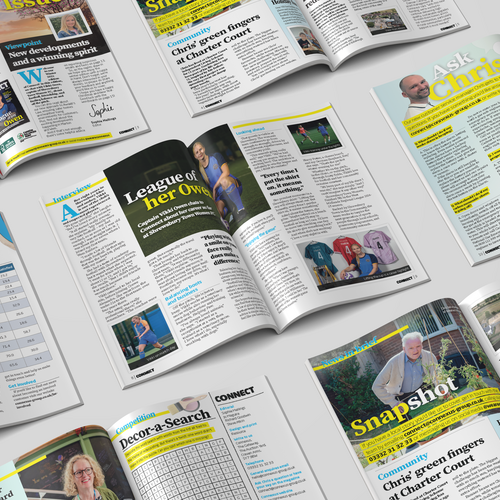Inside the crisis - What we've learnt, will there be a new normal?
As the UK Government starts to look at gradually relaxing the lockdown that has been in place for the past 6 weeks, it’s becoming clear that we will all have to adapt to what the Foreign Secretary, Dominic Raab, has dubbed the “new normal.”
We’ve all started to become familiar with the 2-metre queues and plastic screens being adopted across the retail industry, and all sectors will be implementing changes as staff return to work. But how has Connexus adapted to the challenges presented by this ongoing and ever-changing situation? And what might the new normal look like for us?
At the start of lockdown, our teams soon realised that our response needed to focus on our customers. With this in mind, our Customer Engagement Program was launched on 6th April with the target of calling 10,000 customers across Shropshire and Herefordshire.
While the primary aim has been to let customers know that Connexus is still here and delivering a limited service (as per Government guidelines), advice has also been given on employment, benefit and income issues. Customers have also been signposted to other local agencies, including food banks and mental health support. The message is clear: our housing and support services are operating as close to usual as possible.
The Customer Engagement Programme has also produced an up-to-date record of Connexus’ most vulnerable customers, who may need further support as the lockdown situation develops. The personal touch offered by a phone call, as supposed to an email or other digital communication, has been particularly appreciated by some of our more isolated and vulnerable customers.
Colleagues making these calls are reporting that, while the majority of customers seem to have few concerns in the short-term, many are anxious about what affect a continuing lockdown may have on their finances and general wellbeing. Keeping on top of these concerns and issues affecting our tenants will be vital in the coming months. This has already led to plans for a ‘hardship fund’ to be made available for tenants struggling, often due to delays in their first Universal Credit payment.
Video meetings have also proved to be a key part of the Connexus ‘working from home’ strategy. Systems were already in place to allow teams to do this but never before at such a scale. Many have switched fairly seamlessly to working from home, and the process has re-enforced that agile working could be more of a day to day occurrence, once we return to "normal".
But, with an introduction of a new way of working, inevitably there will be some hiccups. Not necessarily because of technology, but because delivering some services needed a greater change and implementation process. The challenge for the team at Independence Trust, our commissioned support service, has been perhaps more significant because many services involve a network of support groups, activity classes and even one-to-one mentoring from keyworkers.
Video chats might be known to most of us as the place where we take part in that Friday night not-at-the-pub quiz, but video calling services have given a lifeline to clients and their keyworkers, allowing that vital one-to-one support to continue. For many, mental health issues have undoubtedly been intensified by the lockdown.
But working from home isn’t always plain sailing, with many of us having to juggle work with childcare, dropping supplies off to vulnerable people and any number of other pressures. Like many businesses, Connexus has had to quickly adjust to more colleagues adopting ‘flexible working’ hours. Some strains may have presented themselves initially (it’s hard to respond to an urgent email with a toddler crawling over you!) but staff have adapted to this new way of working remarkably well.
The UK Government is hinting at a slow exit from the lockdown that has placed pressures on so many across society, but the “new normal” will require Connexus, like many businesses, to continue to adapt to changes in controls and the troubles facing our customers.
This article is part of a weekly "inside the crisis" series. Here, we explore and share our insights on the effects of Covid-19.
Domestic abuse, the data behind the rise | Food banks and community

'Give us a mic' podcast project gives younger people a voice

Celebrating National Apprenticeship Week at Connexus

Green light for affordable housing regeneration in Shropshire

Connexus appoints two new non-executive directors

Connect Magazine Winter 2025
